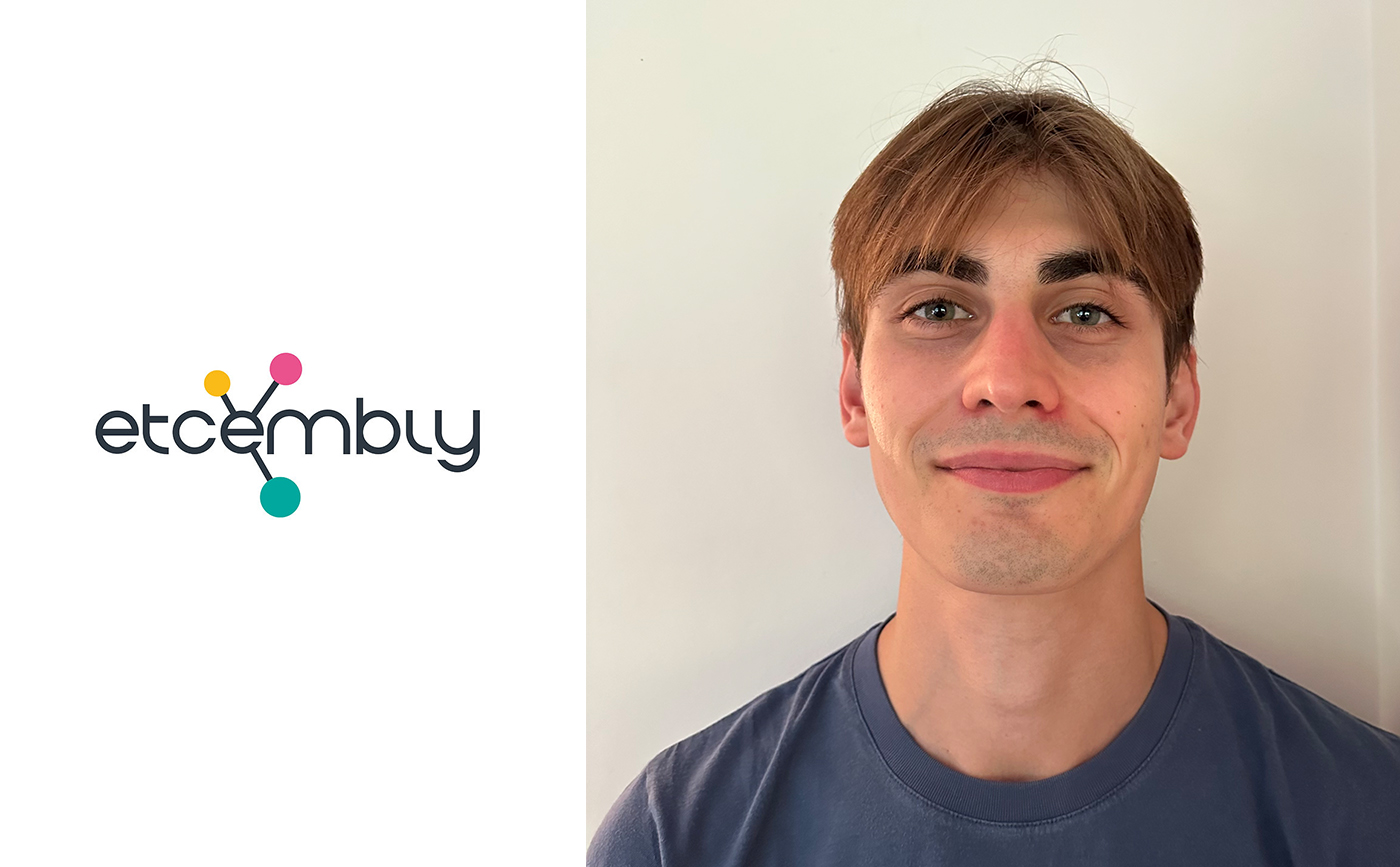
Supporting the next generation in biotech
Gusztav Milotay started off his research career with Harwell Campus resident startup Etcembly as an intern in their microfluidics department after finishing his degree. Now, the company is supporting him with a bursary for his PhD at The University of Oxford. Gusztav shares what he learned during his time with Etcembly, and why he feels it’s so important for startups to give opportunities to fresh scientific talent.
My undergraduate degree in biochemistry took place right in the middle of the COVID-19 pandemic, which limited my real-world and lab experience. So at the end of my three-year course, I decided to step out of academia and try some hands-on work in the biotech field.
I had a strong interest in the immunotherapy space, particularly TCRs and antibodies, and the role of protein structure in target recognition. After speaking with Michelle Teng, the CEO, I was fascinated to hear about the work Etcembly was doing in discovering and optimising TCR-based therapeutics and how they were tackling this problem with generative AI.
Recognising the limited amount of data in the public domain available for training their own models, they decided to make some of their own. Jake Hurst, the company’s Chief Technology Officer, then explained the microfluidics sequencing platform they were developing to generate proprietary TCR sequence data for their machine learning models.
I had always thought that biotech was quite an unforgiving industry for people with limited expertise like myself. It makes sense – it’s a specialised field and small companies don’t have a lot of time or resources for training. So I was delighted when they offered me the opportunity to come and work with them on a paid internship.
During my time I managed to learn a huge amount, ranging from various aspects of labwork to computational biology to protein engineering to cloning. The members of the team really took the time to explain what they were doing and help me develop new skills, and I was blown away by how friendly and patient everyone was. In turn, I noticed that having to communicate with other students helped to solidify my understanding – it’s only when you truly understand something that you can explain it in a way that people can grasp.
I think I also brought a fresh perspective by being a newbie in the field, asking the questions that made people see the bigger picture to solve the challenges they were facing. While I was there, the team successfully developed their first picomolar affinity bispecific TCR-based immune engager, which was amazing to see.
Although I was really enjoying being part of the Etcembly team, I realised that I did want to pursue a PhD. My initial plan was to go back to London, but then the team at Etcembly floated the idea of working in Oxford in Ben Fairfax’s lab. He’s a medical oncologist looking at interpatient variation in response to checkpoint inhibitors and the applications of immunotherapy in treating cancer. He has an extensive patient cohort and is doing a lot of single-cell work, so the opportunity seemed perfect for me.
The Etcembly team really got on board and made it happen – and not only helped me secure this position but also supported me with a bursary. They’ve given me freedom in both my experience at Etcembly and what I will pursue during my PhD.
I’m so grateful to Etcembly for giving me a chance to get stuck into the lab, and for their continuing support as I develop as a scientist. I owe a lot to them, and I hope I’ve been a worthwhile investment as I continue to progress my research career.
Related news
-

Harwell Campus, Space East, and Westcott Sign Landmark MOU to Advance the Space Sector Across Southern England
Harwell Science and Innovation Campus, Space East and the Westcott Space Cluster formally signed a Memorandum of Understanding (MOU) at the 2025 UK Space Conference, marking a significant step towards accelerating cross-regional collaboration across the UK’s growing space sector. This initiative aligns with the UK’s National Space Strategy and reflects the growing importance of regional…
-

UK and France launch revolutionary city-scanning satellite to monitor CO2 emissions
Harwell Campus organisations have played a key role in the launch of Europe’s first urban area CO2 emissions monitoring satellite in a collaborative mission between the UK and France in an attempt to further understand how the world’s climate is changing. The MicroCarb mission was developed between the UK Space Agency, whose HQ is in…
-

Harwell Launches Blue Plaque Competition to Honour Campus Heroes
To mark the 80th Anniversary of Harwell Science and Innovation Campus, it’s launching the Light Project Blue Plaque Campaign: a new initative to honour individuals and breakthroughs which have made a lasting impact on the campus, science, or society. Harwell Campus has been home to some of the UK’s most extraordinary breakthroughs in science, technology…